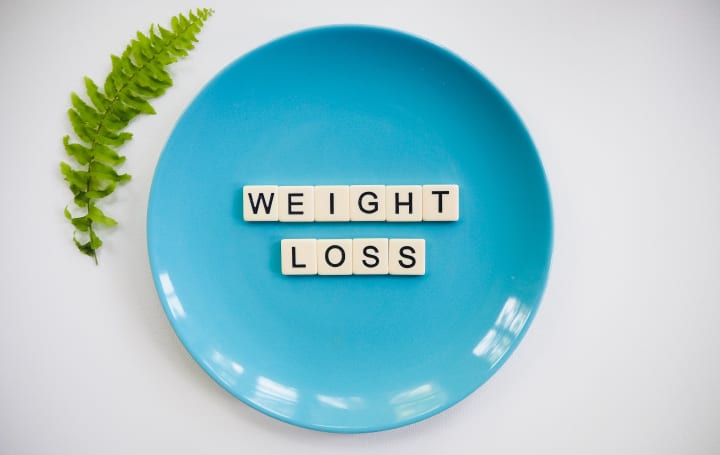Unique Ways to Lose Weight While Eating Your Favorite Food
Lose Weight
introduction
Losing weight can be a challenging journey, often requiring sacrifices and restrictions. However, what if we told you that you can still enjoy your favorite foods while working towards your weight loss goals? It's not a dream—it's possible. In this article, we will explore unique ways to lose weight while eating your favorite food. By adopting a balanced approach and making smart choices, you can achieve sustainable weight loss without depriving yourself of the foods you love.
Understanding Weight Loss
Before diving into the strategies, it's important to understand the basics of weight loss. Weight loss occurs when you consume fewer calories than your body burns. This calorie deficit can be achieved through a combination of dietary changes and increased physical activity. While there are numerous diets and weight loss approaches, finding a plan that suits your lifestyle and preferences is crucial for long-term success.
The Role of Diet in Weight Loss
When it comes to weight loss, diet plays a vital role. However, this doesn't mean you have to give up your favorite foods entirely. By incorporating them into a healthy and balanced diet, you can still enjoy them while achieving your weight loss goals.
Incorporating Your Favorite Foods in a Healthy Diet
Portion Control and Moderation
One effective strategy is practicing portion control and moderation. Instead of completely eliminating your favorite foods, enjoy them in smaller portions. By savoring each bite and being mindful of your hunger and fullness cues, you can indulge without sabotaging your progress.
Balanced Macronutrients
Another key aspect is maintaining balanced macronutrients in your meals. Include a mix of complex carbohydrates, lean proteins, and healthy fats. This combination provides essential nutrients, keeps you satisfied, and supports overall well-being.
Mindful Eating
Engaging in mindful eating can transform your relationship with food. Slow down, savor the flavors, and pay attention to your body's signals of hunger and fullness. By being present in the moment, you can make conscious choices and prevent overeating.
Making Smart Food Choices
While incorporating your favorite foods, it's important to make smart choices that promote weight loss and overall health.

Choosing Nutrient-Dense Foods
Incorporating nutrient-dense foods is crucial for successful weight loss. These foods provide essential vitamins, minerals, and fiber while being lower in calories.
Incorporating Fruits and Vegetables
Fruits and vegetables are rich in nutrients and can be enjoyed in various ways. Aim to include a colorful array of fruits and vegetables in your meals to enhance their nutritional value.
Opting for Whole Grains
Replace refined grains with whole grains to increase fiber intake and promote satiety. Whole grains, such as brown rice, quinoa, and whole wheat bread, provide sustained energy and essential nutrients.
Including Lean Protein Sources
Protein is a crucial component of a weight loss diet as it helps with satiety and muscle repair. Choose lean sources of protein such as skinless poultry, fish, legumes, and tofu to support your weight loss journey.
Cooking Methods and Healthy Substitutions
Besides choosing the right ingredients, how you prepare your food matters as well.
Grilling and Baking Instead of Frying
Opt for grilling, baking, or steaming instead of deep frying. These cooking methods reduce the added calories from oil while maintaining the flavor and texture of the food.
Using Herbs and Spices for Flavor
Instead of relying on unhealthy sauces and dressings, experiment with herbs and spices to enhance the taste of your dishes. Fresh herbs and spices not only add flavor but also bring a variety of health benefits.
Replacing Unhealthy Ingredients
Swap unhealthy ingredients with healthier alternatives. For example, use Greek yogurt instead of sour cream, or mashed avocado instead of butter. These substitutions can significantly reduce calorie intake while maintaining taste and texture.
Building Healthy Eating Habits
In addition to making smart food choices, building healthy eating habits is essential for sustainable weight loss.

Planning and Preparing Meals
One effective strategy is to plan and prepare your meals in advance. This allows you to have control over the ingredients and portion sizes, making it easier to stay on track with your weight loss goals.
Meal Prepping for Success
Devote some time each week to meal prepping. Prepare nutritious meals and portion them into individual containers. This way, you'll have healthy options readily available, reducing the temptation to indulge in less healthy choices.
Eating Regularly to Avoid Overeating
Skipping meals can lead to overeating later in the day. Aim to eat regular meals and snacks throughout the day to maintain stable blood sugar levels and prevent excessive hunger.
Mindful Snacking
Snacking can be a part of a balanced diet if done mindfully. Instead of mindlessly reaching for unhealthy snacks, opt for nutritious alternatives.
Choosing Healthy Snack Options
Stock your pantry with wholesome snacks such as fresh fruits, vegetables with hummus, Greek yogurt, or a handful of nuts and seeds. These options provide essential nutrients and keep you satisfied between meals.
Avoiding Emotional Eating
Many people turn to food for comfort or as a coping mechanism during stressful times. Recognize emotional triggers and find alternative ways to deal with emotions, such as practicing deep breathing, going for a walk, or engaging in a hobby you enjoy.
The Power of Portion Control
Portion control is a powerful tool for weight loss. It allows you to enjoy your favorite foods while managing calorie intake.
Understanding Portion Sizes
Become familiar with recommended portion sizes for different food groups. Use visual cues such as comparing portion sizes to everyday objects to help you estimate appropriate portions.
Using Portion Control Tools
Portion control tools such as measuring cups, food scales, and portion control plates can be helpful in managing serving sizes. These tools provide a tangible way to ensure you're not overeating.
Listening to Your Body's Hunger and Fullness Cues
Pay attention to your body's signals of hunger and fullness. Eat slowly and stop when you feel comfortably satisfied, rather than waiting until you're overly full.
Mindful Eating Practices
Practicing mindful eating goes hand in hand with portion control and helps you build a healthier relationship with food.

Eating Slowly and Mindfully
Slow down and savor each bite. Eating slowly allows you to appreciate the flavors and textures of your food, leading to greater satisfaction and reduced overeating.
Paying Attention to Satiety Signals
Check in with yourself during your meal to assess your level of fullness. Pause periodically and ask yourself if you're still hungry. This practice helps prevent mindless overeating and encourages listening to your body's needs.
Physical Activity and Weight Loss
While food choices are crucial for weight loss, incorporating physical activity into your routine is equally important.
Importance of Exercise
Engaging in regular exercise not only burns calories but also improves cardiovascular health, boosts mood, and increases overall fitness.
Finding an Exercise Routine You Enjoy
Choose activities that you genuinely enjoy. This could be anything from walking, jogging, swimming, dancing, or participating in group fitness classes. When you enjoy the exercise, you're more likely to stick with it.
Incorporating Movement Throughout the Day
In addition to dedicated exercise sessions, find ways to incorporate movement throughout your day. Take the stairs instead of the elevator, go for a walk during your lunch break, or do simple exercises while watching TV.
The Role of Mindset and Behavior
Lastly, cultivating a positive mindset and addressing your behaviors around food and weight loss is crucial for long-term success.
Approach your weight loss
journey with a positive mindset. Focus on the progress you're making, both non-scale victories and the positive changes you're experiencing in your overall well-being.
Setting Realistic Goals
Set realistic and achievable goals that align with your lifestyle and preferences. Break them down into smaller milestones to celebrate along the way. Remember, sustainable weight loss is a gradual process.
Celebrating Non-Scale Victories
Acknowledge and celebrate non-scale victories such as increased energy levels, improved sleep, or fitting into clothes more comfortably. These victories reflect positive changes in your body and overall health.
Overcoming Emotional Eating
Emotional eating can derail your weight loss efforts. By addressing emotional triggers and finding healthier coping mechanisms, you can overcome this challenge.
Seeking Support and Professional Help
If emotional eating is a significant struggle, consider seeking support from a therapist, counselor, or support group. They can provide guidance and strategies to help you develop healthier coping mechanisms.
Practicing Stress Management Techniques
Find healthy ways to manage stress, such as practicing relaxation techniques, engaging in regular physical activity, or pursuing hobbies that bring you joy and relaxation. By reducing stress, you can minimize the likelihood of turning to food for emotional comfort.

Conclusion
Losing weight doesn't have to mean giving up your favorite foods. By adopting a balanced approach and making smart choices, you can achieve your weight loss goals while still enjoying the flavors and pleasures of your favorite foods. Incorporate portion control, balanced macronutrients, and mindful eating practices into your lifestyle. Additionally, prioritize physical activity, cultivate a positive mindset, and address behaviors and emotions related to food. Remember, sustainable weight loss is a journey that requires patience, commitment, and self-compassion.
FAQs
FAQ 1: Can I still enjoy my favorite high-calorie foods while losing weight?
Yes, you can still enjoy your favorite high-calorie foods while losing weight. The key is moderation and portion control. By incorporating them into a balanced diet and being mindful of your overall calorie intake, you can still indulge in your favorites while achieving your weight loss goals.
FAQ 2: Is portion control the only way to lose weight?
Portion control is an effective strategy for weight loss, but it's not the only approach. It works hand in hand with other healthy eating habits and lifestyle changes such as choosing nutrient-dense foods, incorporating physical activity, and addressing emotional eating.
FAQ 3: Can I achieve weight loss without exercising?
While exercise is beneficial for weight loss and overall health, it's not the sole determinant. Weight loss primarily depends on creating a calorie deficit through a balanced diet. However, incorporating physical activity can enhance weight loss, improve fitness, and support overall well-being.
FAQ 4: How can I overcome cravings for unhealthy foods?
Cravings for unhealthy foods can be challenging to manage, but there are strategies that can help. Practice mindful eating, identify healthier alternatives, address emotional triggers, and seek support from professionals if needed. Over time, as you make healthier choices and develop new habits, cravings tend to diminish.
FAQ 5: What if I have a slow metabolism?
While metabolism varies among individuals, it's not the sole factor determining weight loss. By adopting healthy eating habits, being physically active, and creating a calorie deficit, you can still achieve weight loss goals regardless of your metabolism. Focus on sustainable lifestyle changes rather than fixating solely on your metabolic rate.
About the Creator
Muhammad Rashid Latif
I am a professional health conseltor






Comments
There are no comments for this story
Be the first to respond and start the conversation.